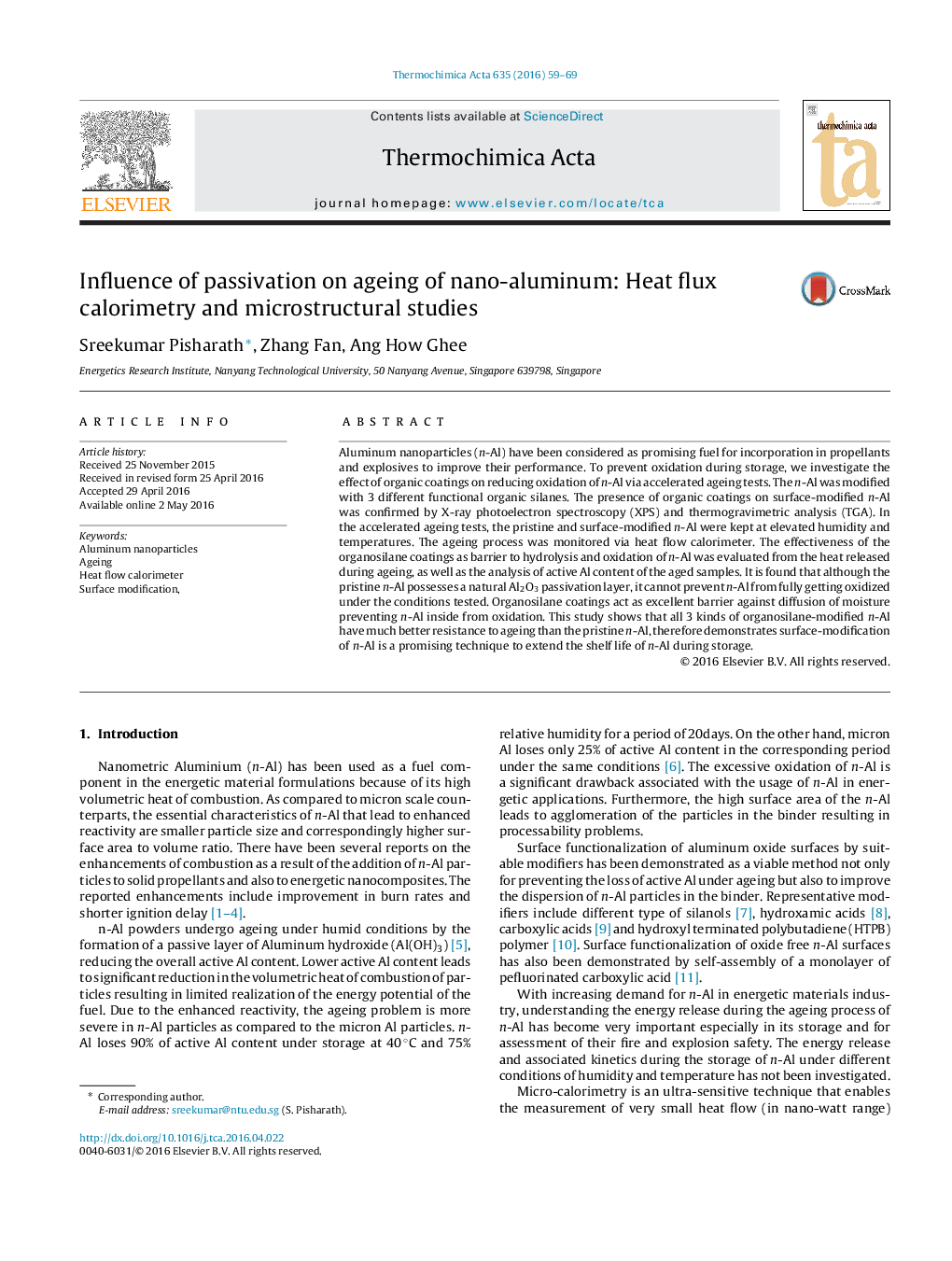| Article ID | Journal | Published Year | Pages | File Type |
|---|---|---|---|---|
| 672746 | Thermochimica Acta | 2016 | 11 Pages |
•Ageing behavior of nano-aluminum is investigated by heat flux calorimetry.•Ageing process proceeds by hydrolysis releasing 13.4 kJ/g of heat.•Organo-silane coatings act as excellent passivation barrier against ageing.•Cumulative energy release for coated n-Al drops markedly during storage.•Non polar organo-silane coating offers improved ageing characteristics.
Aluminum nanoparticles (n-Al) have been considered as promising fuel for incorporation in propellants and explosives to improve their performance. To prevent oxidation during storage, we investigate the effect of organic coatings on reducing oxidation of n-Al via accelerated ageing tests. The n-Al was modified with 3 different functional organic silanes. The presence of organic coatings on surface-modified n-Al was confirmed by X-ray photoelectron spectroscopy (XPS) and thermogravimetric analysis (TGA). In the accelerated ageing tests, the pristine and surface-modified n-Al were kept at elevated humidity and temperatures. The ageing process was monitored via heat flow calorimeter. The effectiveness of the organosilane coatings as barrier to hydrolysis and oxidation of n-Al was evaluated from the heat released during ageing, as well as the analysis of active Al content of the aged samples. It is found that although the pristine n-Al possesses a natural Al2O3 passivation layer, it cannot prevent n-Al from fully getting oxidized under the conditions tested. Organosilane coatings act as excellent barrier against diffusion of moisture preventing n-Al inside from oxidation. This study shows that all 3 kinds of organosilane-modified n-Al have much better resistance to ageing than the pristine n-Al, therefore demonstrates surface-modification of n-Al is a promising technique to extend the shelf life of n-Al during storage.
